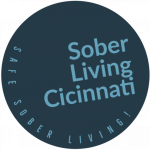When it comes to addiction recovery, one of the most common fears that individuals face is the fear of relapse. The constant worry and anxiety about slipping back into old habits can be overwhelming and hinder the progress made in recovery. Understanding the underlying reasons behind this fear is crucial in effectively managing anxiety and preventing relapse.
For many individuals, the fear of relapse stems from a lack of confidence in their ability to maintain sobriety. They may question whether they have the necessary strength and willpower to resist temptations and triggers. Additionally, past experiences of relapse or witnessing others relapse can contribute to this fear. It is important to recognize that this fear is a normal part of the recovery journey and that there are strategies to manage it effectively.
The Connection Between Anxiety and Relapse
Anxiety and relapse often go hand in hand. Anxiety can be a significant trigger for individuals in recovery, leading them to seek solace in their addictive behaviors as a means of coping. The fear of relapse can also intensify anxiety symptoms, creating a vicious cycle that is difficult to break.
When anxiety is left unaddressed, it can significantly impact an individual’s mental and emotional well-being, making them more vulnerable to relapse. It is crucial to understand the relationship between anxiety and relapse and develop strategies to manage anxiety effectively in order to prevent the risk of relapse.
Common Triggers for Anxiety in Recovery
In order to effectively manage anxiety in recovery, it is important to identify and understand the common triggers that can exacerbate anxiety symptoms. These triggers can vary from person to person, but some common ones include:
- Social situations: Being in social settings where alcohol or drugs are present can be a trigger for anxiety, especially in the early stages of recovery.
- Stressful situations: Stress, whether it be related to work, relationships, or other aspects of life, can significantly increase anxiety levels and the risk of relapse.
- Negative emotions: Feelings of sadness, anger, or loneliness can intensify anxiety and make individuals more susceptible to relapse.
- Environmental cues: Certain places, objects, or even smells associated with past substance use can trigger anxiety and cravings.
By recognizing these triggers, individuals can develop strategies to effectively manage anxiety and prevent relapse.
Effective Strategies for Managing Anxiety
Managing anxiety in recovery requires a multifaceted approach that combines various strategies. Here are some effective techniques that can help individuals conquer their fear of relapse and manage anxiety:
Cognitive-Behavioral Therapy for Anxiety and Relapse Prevention
Cognitive-Behavioral Therapy (CBT) is a widely recognized therapy approach that can be highly effective in managing anxiety and preventing relapse. CBT helps individuals identify and challenge negative thought patterns and develop healthier coping mechanisms. By working with a trained therapist, individuals can learn to reframe their fears and develop strategies to manage anxiety effectively.
Mindfulness and Meditation Techniques for Anxiety Management
Mindfulness and meditation have been proven to be effective in reducing anxiety and promoting overall well-being. These practices involve focusing one’s attention on the present moment, cultivating self-awareness, and learning to observe thoughts and emotions without judgment. By incorporating mindfulness and meditation into their daily routine, individuals can develop a greater sense of calm and resilience in the face of anxiety.
Building a Support Network for Anxiety and Relapse Prevention
Having a strong support network is crucial in managing anxiety and preventing relapse. Surrounding oneself with positive, supportive individuals who understand the challenges of recovery can provide a sense of belonging and encouragement. Support groups, such as Alcoholics Anonymous or Narcotics Anonymous, offer a safe space for individuals to share their experiences and gain support from others who have been through similar struggles.
Self-Care Practices for Managing Anxiety and Preventing Relapse
Practicing self-care is essential in managing anxiety and maintaining a healthy recovery. Engaging in activities that promote physical, mental, and emotional well-being can help individuals alleviate anxiety symptoms. This can include regular exercise, getting enough sleep, eating nutritious meals, and engaging in hobbies or activities that bring joy and relaxation.
Seeking Professional Help for Anxiety and Relapse Prevention
If anxiety symptoms persist or become overwhelming, seeking professional help is crucial. Mental health professionals, such as psychologists or psychiatrists, can provide specialized treatment and support tailored to the individual’s needs. They may recommend medication, therapy, or a combination of both to effectively manage anxiety and prevent relapse.
Conclusion: Embracing a Life of Recovery and Resilience
Conquering the fear of relapse and managing anxiety in recovery is not an easy journey, but it is possible. By understanding the underlying reasons behind the fear of relapse, recognizing the connection between anxiety and relapse, and implementing effective strategies, individuals can embrace a life of recovery and resilience. With the right support, self-care practices, and professional help, individuals can overcome their fears, manage anxiety effectively, and prevent relapse, ultimately achieving a healthier, happier, and more fulfilling life.
If you or someone you know is struggling with addiction or anxiety, reach out for help today. Remember, you are not alone, and there are resources available to support you on your journey to recovery and well-being. Call us today at 855-675-1892.

